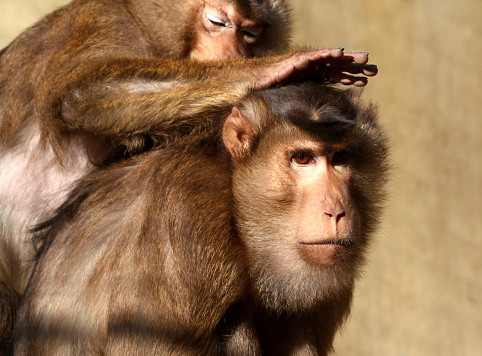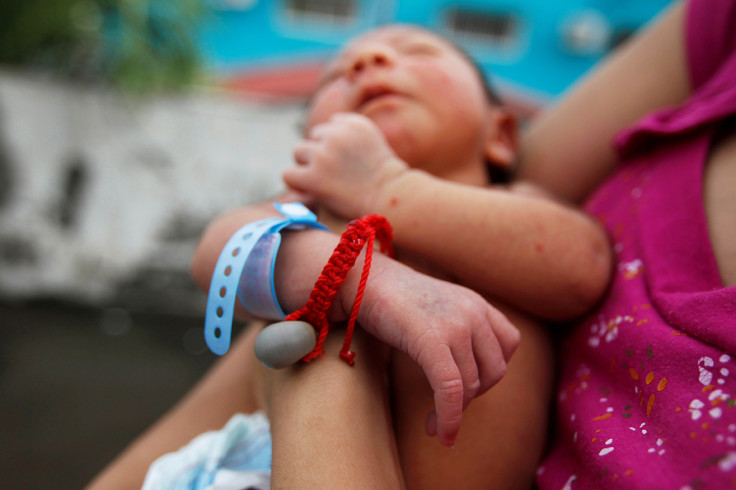Step forward for Zika vaccine after brain abnormality observed in monkey foetus for first time
Pigtail macaques could provide the best animal model to test Zika vaccines and therapies.

For the first time, scientists have shown that a species of the non-human primate, the pigtail macaque, could develop brain anomalies following a Zika infection during pregnancy. It may provide the best animal model to date to test the efficacy and safety of vaccines and therapies against the virus.
In previous studies, scientists had managed to establish a non-human primate model of the Zika virus infection in rhesus macaques, but the brain injuries observed in human foetuses – the best known being microcephaly – had not been reported in this species. This created uncertainty about whether vaccines currently being developed and tested on the monkeys would be able to protect the babies of women infected with Zika.
"A lot of scientific literature involves pigtail macaques, but there are less available than rhesus macaques in US research centres and so they had not been used so far in the context of Zika research", lead author Dr Kristina Adams Waldorf told IBTimes UK.
"They are very close cousins of rhesus macaques, and as close as them to humans, but they have a different susceptibility to flaviviruses, such as the Zika virus. Showing they can give birth to babies with birth defects following an infection may allow us to move on to the next step, giving us the confidence to test vaccines and therapies in humans."
The complete findings are published in Nature Medicine.
Accurate pregnancy models
Pregnancy in macaques resembles in many ways to that of humans. Placenta structure, reproductive anatomy, timing of foetal neurodevelopment and the number of babies the species can have at one time are similar. This is why these animals often provide good models to study pregnancy related-complications. "Pigtail and rhesus macaques are the closest animal models that we have to humans and for human pregnancy. We have used mice models in Zika research but this can be problematic as mice and human pregnancies are very different", Adams Waldorf says.
However, rhesus macaque babies appeared not to suffer from birth defects related to Zika, and this is why Adams Waldorf and her team from from Washington University turned to pigtail macaques. They infected one of these primates with a 2010 Cambodian strain of the Zika virus, during the third trimester of pregnancy.

Although the infection took hold, the animal did not display symptoms of the disease. The foetus, on the other hand, developed brain abnormalities very rapidly – within only 10 days of the mother being infected, according to MRI scans. This suggests using pigtail macaques could help scientists understand how therapeutic interventions could protect foetuses from a Zika infection and prevent brain anomalies.
The hope is that using these animals not only will enable researchers to test preventive treatments' efficacy but also that it would allow to test safety and drug toxicity. This would then pave the way for human clinical trials.
"This study brings us closer to determining if a Zika vaccine or therapy will prevent foetal brain injury, but also be safe to take in pregnancy," Adams Waldorf points out.
Rapidly developing brain injuries
The researchers were particularly shocked to discover how fast foetal brain damage can occur. While symptoms may begin to show in the mother days after the infection, the virus may already have caused profound and irreversible damages to the foetus' brain.
"Surprisingly, there are still doubts in the scientific community that Zika causes brain damage. Our results remove any lingering doubt that the Zika virus is incredibly dangerous to the developing fetus and provides details as to how the brain injury develops," notes Adams Waldorf.
The fact brain injuries can develop very rapidly after an infection highlights the need to come up with effective vaccines and prevention strategies, rather than tackling the disease after the mother has been infected. This makes the conduct of pigtail macaque trials followed by human trials all the more urgent.
© Copyright IBTimes 2025. All rights reserved.






















